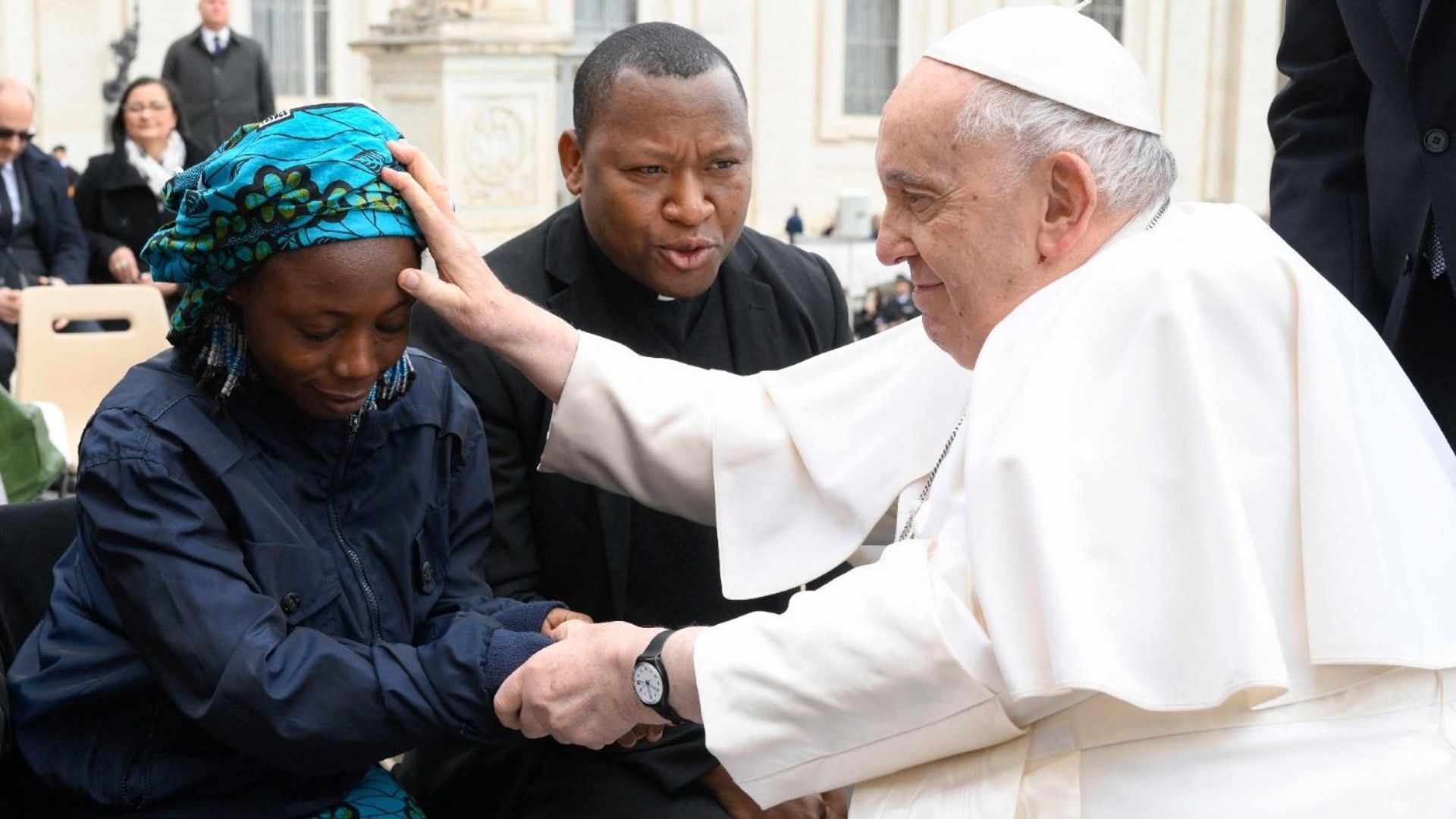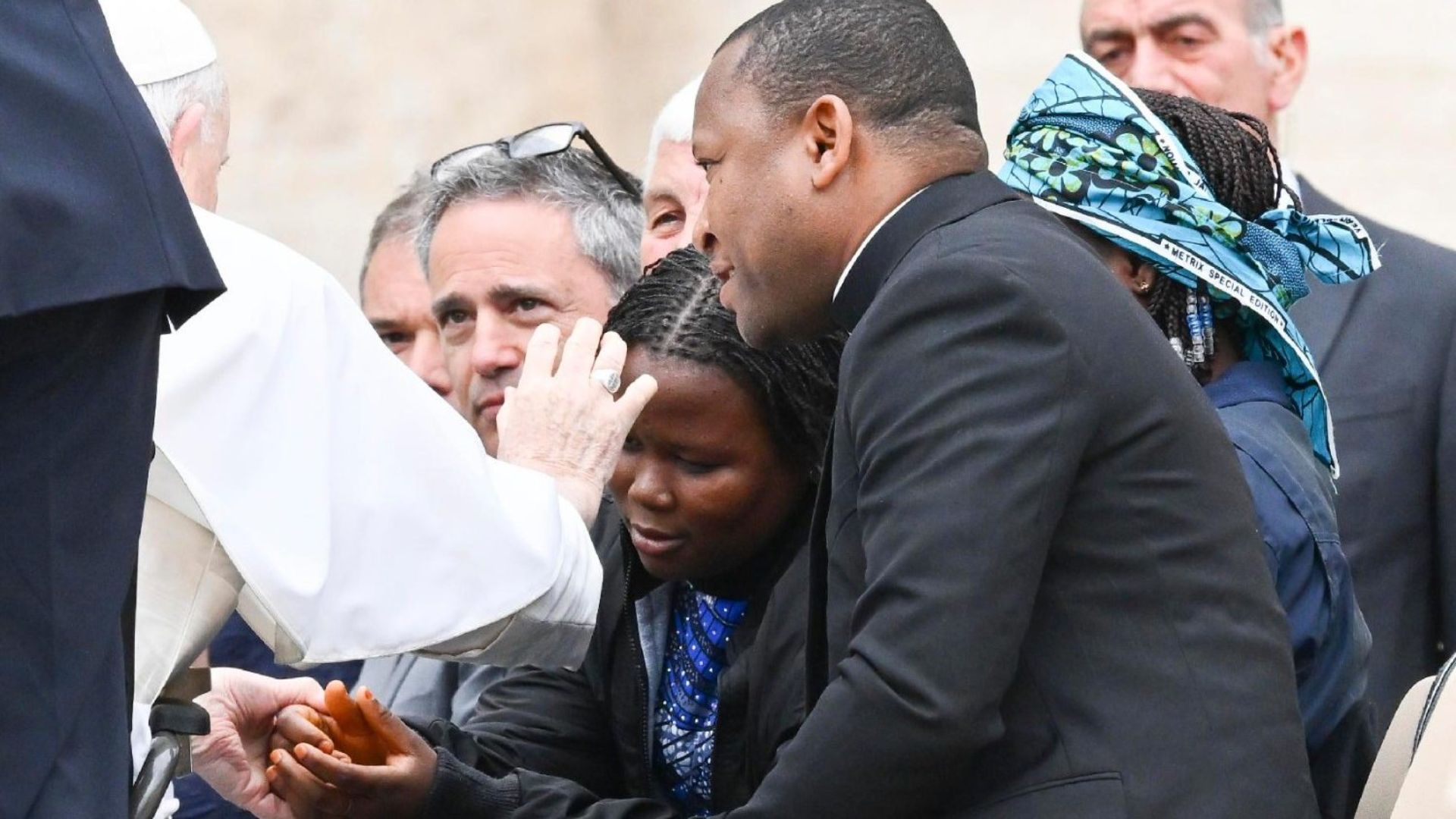Vatican City – On Women’s Day, this eighth of March, Maria Joseph and Janada Markus, became the voice of thousands of girls and women as they bravely told the story of their kidnappings and detentions by the violent men of Boko Haram.
Pope Francis heard their testimony of the devastating reality so many women and girls face in Nigeria and worldwide.
Maria, who after living nine years in the captivity of Boko Haram, prefers to be called Maryamu, speaks only Hausa. She was kidnapped at the age of ten and released last August, aged 19.
Janada is slightly older than Maria, 22 years old, and though her captivity was shorter than her friend’s, she was kidnapped four times, and feels no less pain.
The two girls on Tuesday afternoon met with journalists at the Aid to the Church in Need headquarters in Rome. Janada spoke with the encouragement of Fr Joseph Fidelis who runs the trauma centre in Maiduguri diocese where the girls are looked after. She chose to speak in English, which she has recently been learning at school.
Janada’s story
Janada has survived four attacks by Boko Haram. Her whole family managed to escape the first, in 2011, when the terrorists set fire to their home in Baga. When the same thing happened just three years later in their new house in Askira Uba, in Borno state some family members did not make it. However, it is in recounting the third attack, on 28 October 2018, that Janada’s eyes fill with tears and she takes a moment to cry. “It is difficult for her”, Fr Joseph steps in addressing the journalists in Italian on her behalf. “That is the day they killed her father”.

Janada was only seventeen years old when her father was decapitated in front of her. Once more, two years later, Janada came face to face with the men who killed her father, kidnapping her from the hospital bed where she was recovering from a small operation. They held her hostage for six days, during which time she was tortured emotionally, physically and mentally.
Maria’s story
Maria has a very different story. She was kidnapped at the age of 9 and lived under Boko Haram for over ten years. Maria, or Maryamu, talks about being kept in a cage, about being shot in one leg as she attempted to escape, about being promised in marriage to a man, much older than she was. Unlike Janada, Maria doesn’t cry, but she, too, eventually stops talking, and Fr Joseph continues for her, telling us that she lives in Abuja with her aunt because she wasn’t able to live with her mother, who had long considered her dead. “That area brings back bad memories”, he says. “Maria for a year could not even be around men, let alone look them in the eyes”.

In her nine years of slavery, Maria was held hostage, for some time, with some of the almost 300 girls who were kidnapped from a school in Chibok in 2014, the same ones for whom the slogan “bring back our girls” was created. But despite efforts accompanying that slogan, Maria’s brother, who is still in captivity, has not been brought back. Nor will they bring back her other brother, killed, just as Janada’s father was. And there are still thousands of victims of Boko Haram across Nigeria.
There is hope…
But there is hope for the girls. Janada is living back at home with her mother and siblings, she is studying tropical medicine, following in the footsteps of her father. Maria is at school, learning to read and write. Both were welcomed by Fr Joseph in his trauma centre. Over 300 women have benefitted from treatment at the centre, funded by Aid to the Church in Need. The centre, with its consultants, experts in the physical, medical, psychological, sociological and educational fields, helps victims of violence reintegrate into society, giving them hope and showing them how life should be, for every single woman, everywhere.
-VN